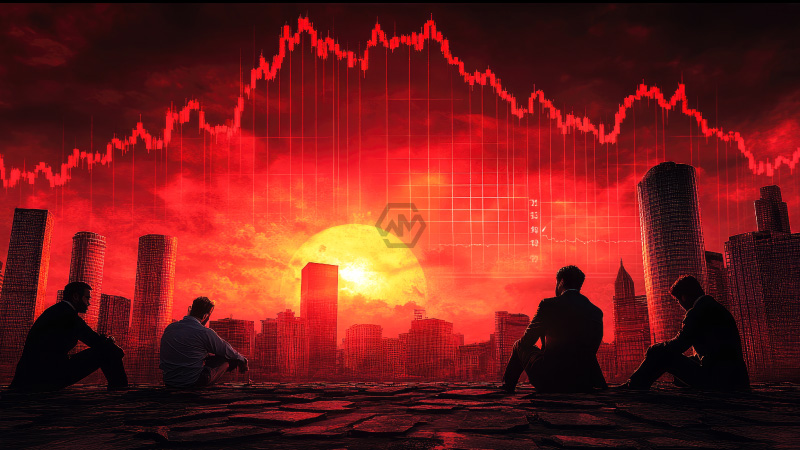- Dow Jones sinks over 1,000 points as Trump attacks Fed Chair Jerome Powell.
- Nasdaq and S&P 500 fall sharply amid renewed U.S.-China trade tensions.
- Gold hits record high while the U.S. dollar drops to a three-year low.
U.S. markets saw a steep sell-off on Monday after former President Donald Trump lashed out at Federal Reserve Chair Jerome Powell. This raised concerns over the Fed’s independence.
The sell-off was compounded by worsening U.S.-China trade tensions. With no visible progress in talks and China urging global partners not to side with Washington, investor sentiment remained fragile.
Fed Independence in Question as Markets React to Trump’s Aggression
The financial markets opened with moderate losses but intensified rapidly after Trump’s aggressive comments aimed at Jerome Powell. By mid-session, the Dow had shed over 1,000 points, signaling the extent of investor panic. Traders were especially unnerved by Trump’s hints at Powell’s potential termination—an unprecedented political intervention in U.S. monetary policy.
High-growth tech stocks were hit the hardest. Tesla’s 7% plunge and Nvidia’s 5% slide reflected not just sector-specific concerns but a broader tech retreat. This was amid rate cut uncertainty. The rest of the “Magnificent Seven” also saw losses, with Meta, AMD, and Amazon all in red territory. These losses contributed significantly to Nasdaq’s 3% dive.
The bond market didn’t offer much relief. Treasury yields fell, indicating a move into safer assets. Yet, even traditional hedges like the dollar faltered. Gold’s spike above $3,400 per ounce was one of the clearest signs that investors were losing confidence. This related to U.S. policy predictability, both monetary and trade-related.
Meanwhile, India’s markets stood in contrast, with the Sensex rallying on strong bank earnings and foreign fund inflows. Investors there were optimistic about domestic fundamentals, with HDFC Bank and ICICI Bank leading gains, even as global headwinds persisted.
The latest market turbulence underscores how deeply political uncertainty and global trade tensions can rattle investor confidence. This pushes capital toward safer ground.
“Markets hate uncertainty — and today’s sell-off is a reflection of exactly that.” — Robert Haworth, U.S. Bank



